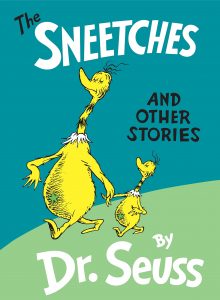
The Collect: Gracious Father, whose blessed Son Jesus Christ came down from heaven to be the true bread which gives life to the world: Evermore give us this bread, that he may live in us, and we in him; who lives and reigns with you and the Holy Spirit, one God, now and for ever. Amen.
Virtual Coffee Hour Zoom Instructions: Mar 22, 2020 10:30 AM
-From a PC, Mac, iPhone, iPad, or Android device, click on https://zoom.us/j/398077843
-The first time you use this, you will need to download a software program, but it is very fast. When prompted, click “Join Audio Conference by Computer.”
-If you want voice only, please dial (312) 626-6799. And enter meeting ID: 398 077 843.
Lectionary: Read the Lessons Here
“Pie Jesu” by Mary Lynn Lightfoot (Latin text from the traditional Requiem mass) Sung by Brad Cresswell and Jane Weber
A sermon for the Fourth Sunday in Lent, March 22, 2020 by J. Paul Board
I wish I could see the pathogen. This is a childish fantasy, but I wish I could look into a crowd of people and see who is contagious and who is not. I could look at a countertop, door knob, or railing and see the germs of COVID-19 just staging there, waiting for my touch. I would steer clear of certain people, places, and air zones, if I could see the germs.
This is the Fourth Sunday of Lent. Jesus heals the blind man. I encourage you to go back up to the link for the Lectionary. Read the scripture lessons assigned for the fourth Sunday. The gospel lesson is a bit longer than normal.
Yes, this is miracle story. The blind man regains his sight. I have preached plenty of sermons on the miracle. In the context of our time, my attention goes to the man who has spent his life without sight. I am thinking about his life, pre-miracle. He cannot see what we take for granted.
And now I wish I could see what I cannot. Those terrible germs. We are all blind to the spread of COVID-19. Our best defense is precaution. Wash your hands often. Maintain six feet of social distance. Don’t touch your face. Wash your hands again. Self-isolate without exception. Our lives and our economy are not equipped for this kind of shut down. We cannot see the danger to run away from it. We can only isolate ourselves from an invisible enemy and wait for it to overtake our lives.
 I am reminded of Dr. Seuss’ Sneetches. The story isn’t about a pandemic. But there is a remarkable similarity. Sneetches live on the beaches. They are perfectly normal except some of them have stars on their bellies . Others don’t.
I am reminded of Dr. Seuss’ Sneetches. The story isn’t about a pandemic. But there is a remarkable similarity. Sneetches live on the beaches. They are perfectly normal except some of them have stars on their bellies . Others don’t.
Now, the Star-Bell Sneetches had bellies with stars.
The Plain-Belly Sneetches had none upon thars.
The star appears to be genetic because it discriminates along family lines. The star-belly sneetches have greater status in the community. The plain-belly sneetches are jealous. They assume a lower status.
The gospel story becomes relevant because the blind man would not appreciate what the star does for privilege. The social status portrayed in Dr. Seuss’ story is fabricated, despite being genetic. The visual distinction is the only way to identify the two groups.
Along comes a salesman named McBean. He is human not a sneetch. He offers stars to the group who lack them, $3 each. They eagerly pay and jump into a special machine to receive their new stars. The machine has the familiar look of a Dr Seuss designed contraption with bells and whistles. The elite sneetches are now offended the lesser sneetches look like them. The salesman offers to remove the star at an inflated price of $10 each. The elites eagerly pay and jump into another machine.
Once again the sneetches are separated. The elites declare the star to be out of fashion. But the salesman is not finished. He now offers both options to add/remove the green star as the sneetches desire. A rush on both machines ensues as sneetches add and remove the star. It keeps going at a very high pace until the sneetches are, all of them, out of money. The scene would be unbelievable expect we all saw the recent rush on toilet paper. Perhaps you felt the same panic.
Dr. Seuss’ story has many levels of understanding. First it is about prejudice and discrimination. The star could be racial, cultural, economic or religious. Dr. Seuss said he wrote it to counter antisemitism. The story is about exploitation because the salesman took all their money. But the story is also about grace and redemption.
The salesman left after the sneetches spent all their money trying to be different. Once gone, the sneetches could no longer distinguish themselves. The star-bellies were all mixed up with plain bellies. That’s when the sneetches realized they didn’t need to be different. They could be sneetches on the beaches without looking at star-bellies and plain bellies. The visual distinction was meaningless. They lost their money learning this lesson.
Here are the words from Dr. Seuss to end the story:
Then, when every last cent of their money was spent,
The Fix-It-Up Chappie packed up. And he went.
And he laughed as he drove in his car up the beach,
“They never will learn. No. You can’t Teach a Sneetch!”
But McBean was quite wrong. I’m quite happy to say.
That the Sneetches got really quite smart on that day.
The day they decided that Sneetches are Sneetches.
And no kind of Sneetch is the best on the beaches.
That day, all the Sneetches forgot about stars and whether
They had one, or not, upon thars.
At this point I encourage you to go back to read the gospel story again. This is not about the miracle, per se. The story is about the Pharisees who cannot accept what Jesus did. He healed the blind man. First they discredit him. Then his parents. Then they call Jesus a sinner. The whole time they cannot see Jesus as the Son of Man while the “blind man” sees who he is.
Jesus said, “I came into this world for judgment so that those who do not see may see, and those who do see may become blind.” Some of the Pharisees near him heard this and said to him, “Surely we are not blind, are we?” Jesus said to them, “If you were blind, you would not have sin. But now that you say, ‘We see,’ your sin remains.”
My fantasy to see the pathogen is dangerous. If we had the superpower, it would open up a whole new world of discrimination, isolation and condemnation. The popular A&E TV show Walking Dead is an extreme example of the loss of human respect and dignity for those who carry a virus. The show’s premise suggests the victims are already dead, therefore they may be discarded. COVID-19 won’t bring us to extreme discrimination. But everything about this virus has been shocking. And isolating.
We want to keep safe. Since we cannot see the germs, the best way to stay safe is to maintain social distance and wash our hands. This isn’t just about staying away from germs, but preventing their spread to others. We might carry the virus and not know it because we can’t see it.
The spring breakers on the beaches were shameful. I saw the images on the news and immediately thought of star-belly sneetches. They pranced around in their bikinis and shirtless bodies on the beaches in complete disregard for the danger they may have caused. They can’t see the pathogen, but they wanted us to see their hedonism. Everyone of those college students were headed backed to their parents’ homes because they have been kicked out of the dormitories. The colleges are closed. One girl answered a reporter’s question, why are you here? with “It’s my birthday.” Another said, “This is my time to be selfish.”
Do Jesus’ words make a little more sense now?
I encourage you to stay safe. Stay away from others for a time. This isn’t just about isolating from the virus. It is also isolating yourself in case you already have it. You cannot see. But you can love your neighbor no less.
Amen.

